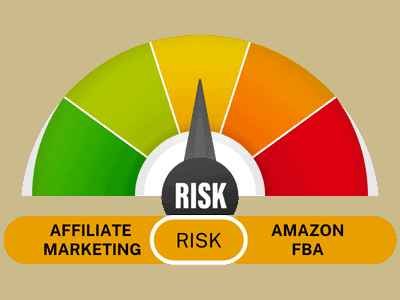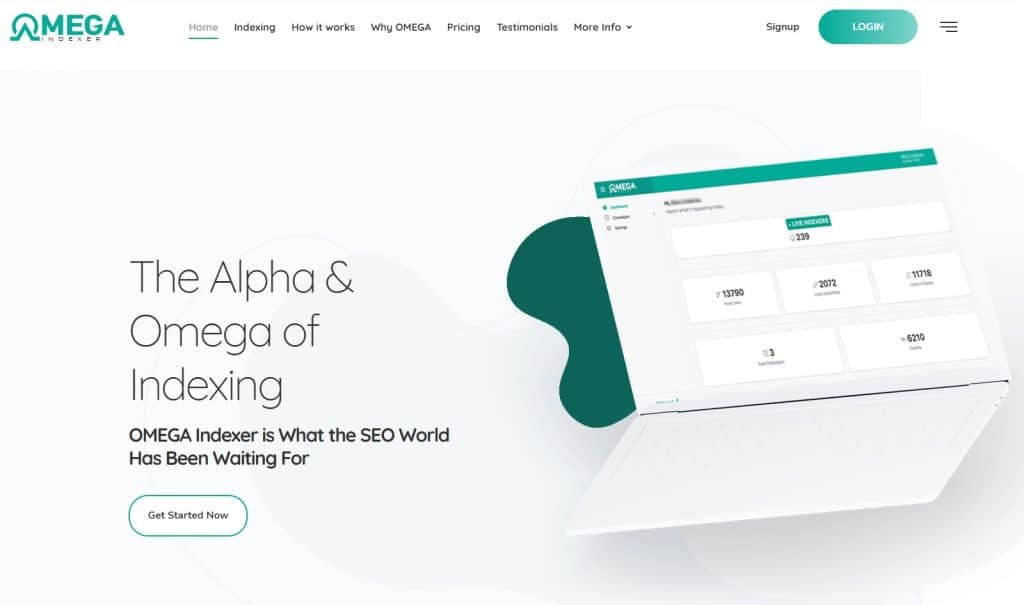Are you looking for a flexible and hands-off way to make money online? Perhaps you’re debating between affiliate marketing and Amazon FBA. Both options offer the potential for a significant profit, but they require distinct approaches and skill sets. As an experienced digital marketer, I’ve seen firsthand how these two strategies can benefit different types of entrepreneurs. In this article, I’ll break down the differences between affiliate marketing and Amazon FBA and help you determine which one is the best fit for your business goals. So, whether you’re just starting out or you’re looking to switch things up, keep reading to discover which model is right for you.
Comparison Table: Affiliate Marketing vs. Amazon FBA
| Features | Affiliate Marketing | Amazon FBA |
|---|---|---|
| Initial Investment | Can start with no money upfront | Requires initial investment for product inventory and storage |
| Ownership | No ownership of products | Full ownership of products |
| Product Research & Development | No involvement | Need to conduct research and develop products |
| Marketing | All marketing efforts are focused on driving traffic to the merchant’s website | Amazon handles marketing and promotion for products listed on their marketplace |
| Profit Margin | Low profit margins, usually around 5-20% per sale | Higher profit margins can be achieved, typically ranging from 25-50% |
| Logistics / Shipping | No involvement | Amazon handles all shipping and logistics for products sold on their marketplace |
| Customer Service | No involvement | Responsible for handling customer service and returns |
| Scalability | Can be scaled quickly without needing to worry about inventory or shipping | Scalability may be limited by available inventory, warehouse space, and shipping capabilities |
| Risks & Challenges | Reliance on merchant’s website and reputation, no control over product quality or inventory | Risk of overspending on inventory or underestimating demand, potential for warehouse or shipping problems |

Affiliate Marketing
Affiliate marketing is a type of performance-based marketing in which businesses reward affiliates for each customer or visitor brought in by the affiliate’s marketing efforts.
Pros
- Low start-up costs
- No inventory required
- No shipping or handling involved
- Flexible working hours and location independence
Cons
- No control over the product or pricing
- Relying on the merchant to manage sales and customer service
- Competing with other affiliates for the same product
Key Points
- Affiliate marketing typically involves promoting products through content marketing, social media, and email marketing.
- Most affiliate programs offer commission rates ranging from 5%-50%.
- Affiliate marketing can be profitable if you have a large audience or niche-focused followers.
Features
- Commission-based payouts
- Access to promotional tools and resources
- Performance metrics and reporting
Quantitative Measurements and Research
According to a study by Rakuten Marketing, affiliate marketing is expected to grow to $8.2 billion by 2022. In 2018, 16% of all online orders were generated through affiliate marketing.
Reasons to Consider or Ignore
Affiliate marketing can be a great way to earn passive income with low start-up costs. However, success heavily relies on audience size and promotion efforts. Additionally, lack of control over the product and pricing can be a major drawback for some.
Suggestions for Potential Users
Potential users should focus on building a niche-focused audience and creating valuable content that promotes relevant products. They should also research and join reputable affiliate programs that offer fair commission rates and reliable support.
Amazon FBA
Amazon FBA (Fulfillment by Amazon) is a service offered by Amazon that allows businesses to store their products in Amazon’s fulfillment centers, where Amazon picks, packs, and ships the products to customers on behalf of the seller.
Pros
- Easier and faster fulfillment of orders
- Access to Amazon’s massive customer base
- Automation of many time-consuming tasks
- Improved ability to scale and expand
Cons
- Higher start-up costs and fees
- Less control over shipping and handling
- More competition on Amazon’s marketplace
Key Points
- Amazon FBA is a popular option for businesses selling physical products online.
- Sellers can take advantage of Amazon’s trustworthiness and reputation as a leading online retailer.
- Amazon charges fees for storage, fulfillment, and other services that can add up quickly.
Features
- Fulfillment of orders by Amazon
- Access to Amazon Prime customers
- Inventory management tools
Quantitative Measurements and Research
In 2019, Amazon reported that third-party sellers (which includes FBA sellers) sold more than 3.4 billion products, with over 215,000 sellers surpassing $100,000 in sales.
Reasons to Consider or Ignore
Amazon FBA can be a great option for businesses looking to streamline their fulfillment process and access Amazon’s huge customer base. However, fees and initial investment costs may act as a barrier to entry. As well, competition within Amazon’s marketplace may make it more difficult to stand out.
Suggestions for Potential Users
Potential users should carefully consider the costs and fees associated with Amazon FBA, and ensure that the service is a good fit for their business model. They should also research the competitive landscape on Amazon to determine how they can differentiate themselves and stand out amongst competitors in the marketplace.

Guidelines for Using Affiliate Marketing vs. Amazon FBA: Finding the Best Fit
1. Understand Your Business Needs
Before deciding which approach to take, it’s essential to understand your business needs. Affiliate marketing may work well for businesses that want to generate passive income without the hassle of managing inventory. In contrast, Amazon FBA may work better for businesses that handle physical products and want to benefit from the credibility of Amazon’s brand.
2. Consider Your Resources
While affiliate marketing requires minimal costs and investment, Amazon FBA may require more significant financial resources to manage inventories, shipping fees, and other expenses. Evaluate your budget and resources to determine which approach suits your business needs.
3. Analyze Your Target Audience
Knowing your target audience is crucial to determine which approach suits your business needs. Affiliate marketing works best for businesses that cater to a specific niche, while Amazon FBA may be suitable for businesses with a broader audience. Analyze your target market to determine which approach aligns with your business goals.
How To Determine Which Model is Best for Your Business
To determine which model is right for your business, you will need to assess your current needs, goals, and budget. Consider factors such as your level of expertise in online selling, the amount of time and resources you can devote to managing inventory and shipments, and your target audience and preferred marketing strategies. It may also be helpful to research successful businesses that are similar to yours and see which model they are using.
How To Compare the Costs of Affiliate Marketing and Amazon FBA
To compare the costs of affiliate marketing and Amazon FBA, you will need to consider a range of expenses, such as product sourcing, warehousing, shipping, commission fees, advertising costs, software subscriptions, and other overhead expenses. You can use tools such as profit and loss calculators and cost analysis sheets to help you determine which model will be more cost-effective for your business.
How To Evaluate the Potential Earnings of Affiliate Marketing and Amazon FBA
To evaluate the potential earnings of affiliate marketing and Amazon FBA, you will need to consider the commission rates, profit margins, and sales volume of each model. Affiliate marketing typically has a lower profit margin but higher commission rates, while Amazon FBA can offer higher profits but is reliant on high sales volume. You can use market research and competitor analysis to help you estimate the potential earnings of each model and determine which will be more profitable for your business.
How To Choose the Right Products to Sell on Affiliate Marketing and Amazon FBA
To choose the right products to sell on affiliate marketing and Amazon FBA, you will need to conduct market research and identify products that are in high demand and have a low level of competition. You can use tools such as Google Trends, Amazon Best Sellers, and social media platforms to identify popular products and evaluate their potential profitability. It is also important to choose products that align with your niche or target audience and that you feel confident promoting.
How To Develop an Effective Marketing Strategy for Affiliate Marketing and Amazon FBA
To develop an effective marketing strategy for affiliate marketing and Amazon FBA, you will need to understand your target audience and their buying behaviors. You can use tools such as SEO keywords, PPC advertising, social media marketing, and email marketing to promote your products and drive traffic to your website. It is important to track and analyze your marketing metrics, such as click-through rates and conversion rates, to refine your strategy and optimize your results.
FAQs for Affiliate Marketing vs. Amazon FBA: Finding the Best Fit
1. What is affiliate marketing?
Affiliate marketing is a type of marketing where an individual earns a commission by promoting the products or services of another company. The individual earns a commission when a sale is made through their unique affiliate link.
2. What is Amazon FBA?
Amazon FBA (Fulfillment by Amazon) is a service offered by Amazon where individuals can sell their products on Amazon and have Amazon handle all aspects of fulfillment for them. This includes storage, shipping, and providing customer service.
3. Which one is better for beginners: affiliate marketing or Amazon FBA?
Both affiliate marketing and Amazon FBA can be great options for beginners, but it ultimately depends on your goals and skill set. Affiliate marketing requires minimal investment and can be easier to start, but it may take longer to see significant earnings. Amazon FBA requires more investment upfront, but can potentially result in higher profits if done correctly.
4. Can you do both affiliate marketing and Amazon FBA?
Yes, it is possible to do both affiliate marketing and Amazon FBA. In fact, many successful Amazon FBA sellers also use affiliate marketing as a way to diversify their income streams. However, it is important to keep in mind the potential for conflicts of interest and to always disclose any affiliate partnerships to customers.
5. What factors should I consider when deciding between affiliate marketing and Amazon FBA?
When deciding between affiliate marketing and Amazon FBA, it is important to consider factors such as your budget, interests, skill set, and long-term goals. Depending on your personal situation, one option may be a better fit than the other. It can also be helpful to do thorough research and seek advice from experienced marketers before making a decision.
In conclusion, both affiliate marketing and Amazon FBA have their own strengths and weaknesses. Affiliate marketing allows for more flexibility and can be started with minimal investment, but may not be as lucrative as Amazon FBA. On the other hand, Amazon FBA has the potential for greater profits but requires more upfront investment and may come with higher risks.
Ultimately, finding the best fit for your business will depend on your individual goals, resources, and preferences. Consider your niche, marketing strategy, and budget when deciding which option to pursue.
If you’re just starting out and want to test the waters, affiliate marketing may be a good choice for you. But if you’re willing to invest more and are ready to take on the challenge of running a physical product-based business, Amazon FBA might be the way to go.
Whatever you choose, remember that building a successful online business takes dedication, hard work, and some trial and error. Take the time to research and learn about your chosen method, and stay committed to your goals and vision for success.

One of the Top SEO Consultants In Bangladesh. In 7 years of my career, I have worked with more than 80 brands & uncountable love from my SEO clients. To provide SEO service I have an in-house SEO team.




